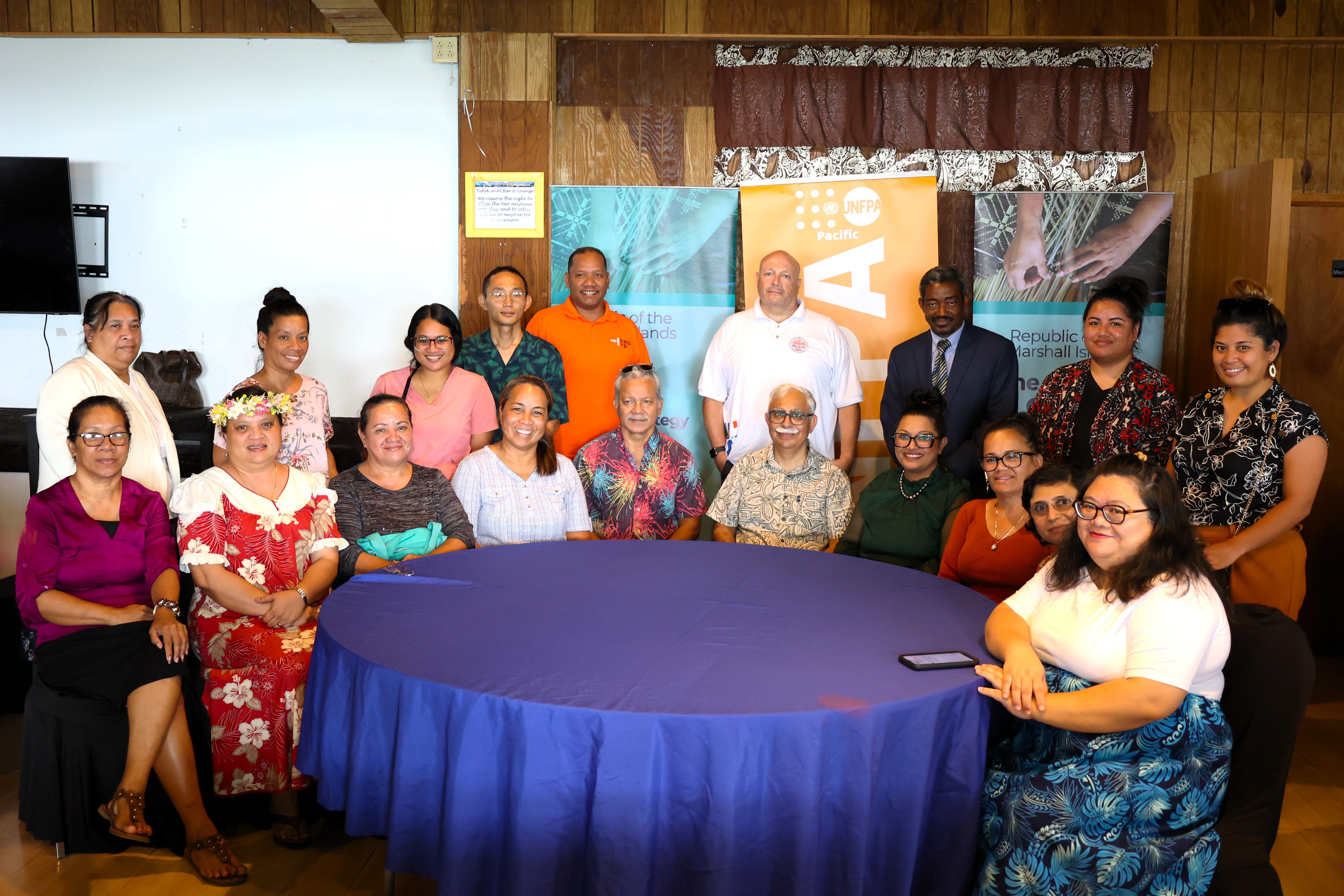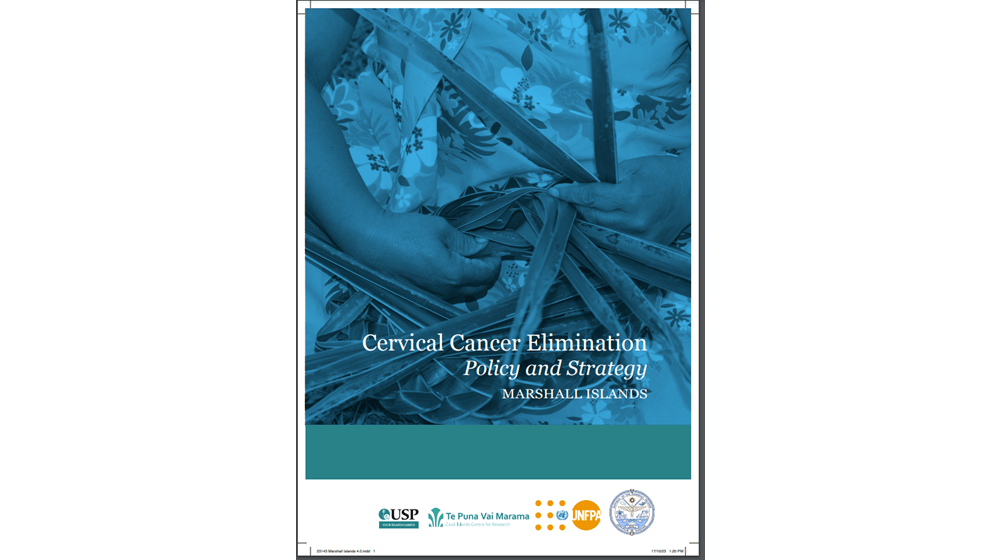MAJURO, Republic of the Marshall Islands – “As we discuss the National Policy and Action Plan for Cervical Cancer Elimination, I feel very proud. This cause is deeply personal to me as well. My mother's triumph over cancer for over 12 years has only strengthened my resolve. My little girl and all our young daughters deserve a future free from the threat of cervical cancer,” said Ms. Francyne Wase-Jacklick, Secretary of Health and Human Services.
Cervical cancer is posing a critical threat to women in the Republic of Marshall Islands (RMI), despite the fact that an effective combination of vaccination, screening and treatment can drastically reduce the incidence. The small island country in Micronesia grapples with one of the highest cervical cancer incidence in the world with 70 cases per 100,000 women in 2020, five times higher than the global average.
To address this pressing health issue, the RMI government has launched a National Policy and Action Plan for Cervical Cancer Elimination (2024-2030), developed in partnership with the United Nations Population Fund (UNFPA) Pacific. The policy and action plan outlines a comprehensive approach to combating the disease, including the introduction of the human papillomavirus (HPV) DNA testing as a ‘gold standard’ screening method.
Traditional screening methods such as Pap smears and Visual Inspection with Acetic Acid (VIA) have faced challenges in RMI due to resource constraints and limited healthcare infrastructure, prompting the need for more effective and accessible alternatives. By adopting HPV DNA testing, the country aims to increase screening coverage to 70% of women aged 25-60, doubling from the current level (37%), to foster earlier detection and treatment of precancerous lesions.
“Cervical cancer is one of the most prevalent cancers affecting women in our country, making screening and early detection a major priority for our government. The support from UNFPA underscores our united effort in this critical fight. Together, we move forward with hope and determination, working towards a brighter and healthier future for every child in our nation,” reiterated the Secretary of Health and Human Services.
“The Marshall Islands’ National Policy is commendable as it introduces the HPV DNA testing that is a highly sensitive test and offers a high precision, more accurate and reliable method for detecting high-risk HPV strains, which are responsible for more than 95% of all cervical cancer cases,” Dr. Mateen Shaheen, Deputy Director, UNFPA Pacific Sub-Regional Office, explained the considerable benefits of the new method, as he joined the launch of the policy and action plan held in the capital Majuro.
UNFPA is intensifying its support to the fight against cervical cancer in the Pacific region, with the generous funding support of the Chugai Pharmaceuticals (Tokyo). The new project that starts in RMI in October 2024 entitled “Introduction of an HPV DNA Test and Treat Project” aims to screen approximately 8,000 women and girls for HPV, covering the majority of the target women in the Marshall Islands. In collaboration with local partners, the project will also carry out an extensive public awareness campaign to sensitize communities about cervical cancer prevention and the importance of early detection.
“The initiative will assist the Marshall Islands by providing a GeneXpert point-of-care PCR machine for HPV testing, as well as equipping healthcare providers nation-wide including from primary healthcare clinics with the knowledge and tools to offer high-quality cervical cancer screening and treatment services, in addition to improving referral linkages and conducting mobile screening especially in areas with low screening coverage,” said UNFPA Pacific Deputy Director Dr. Shaheen.



